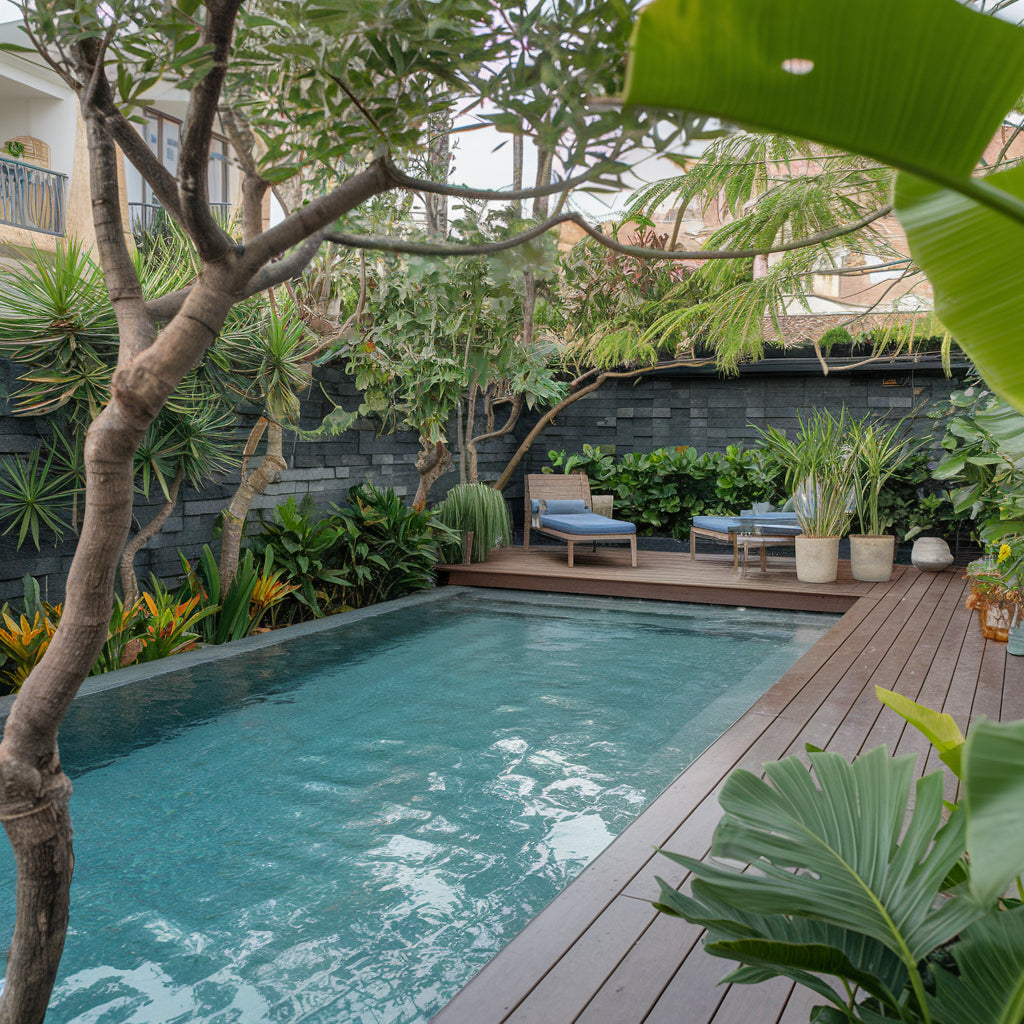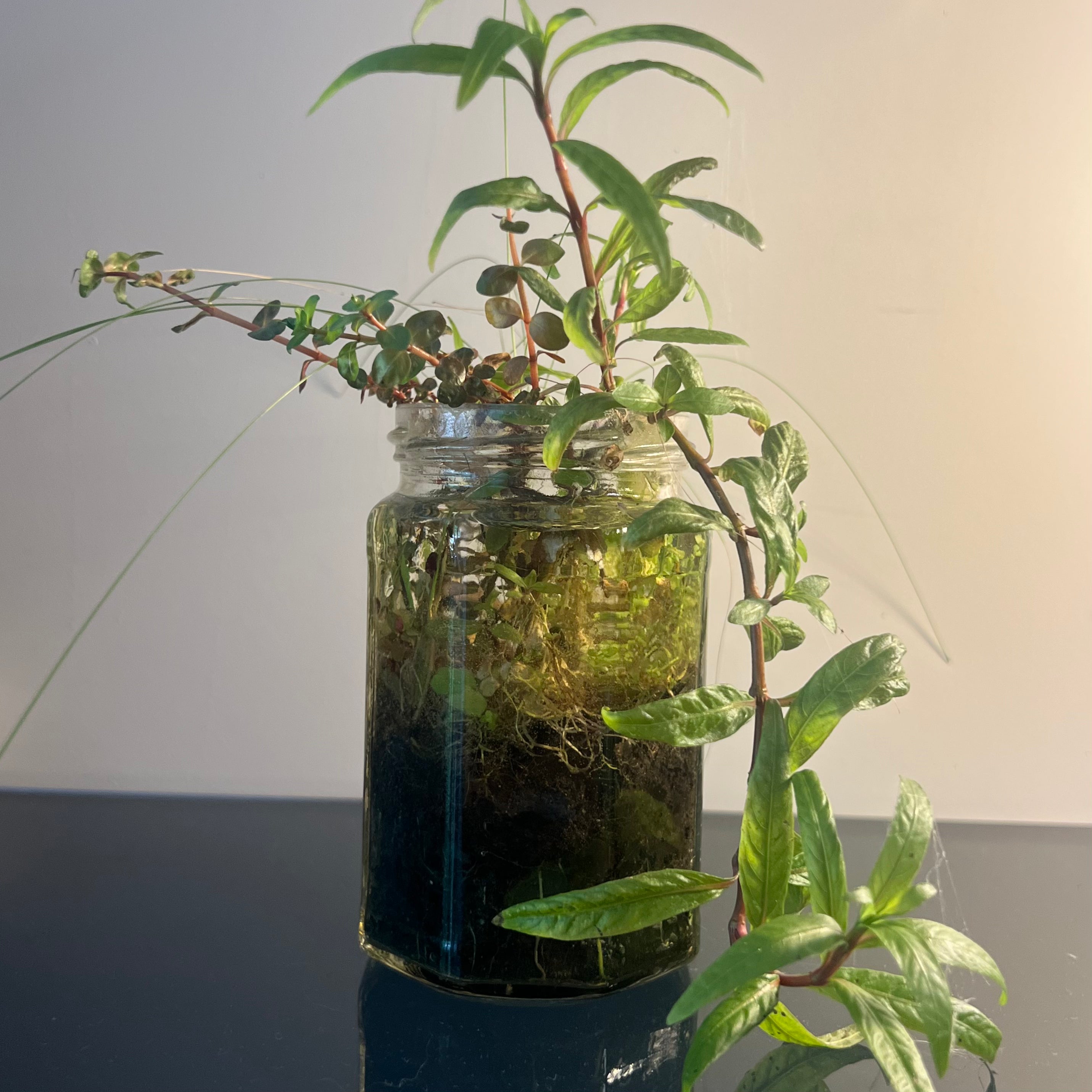
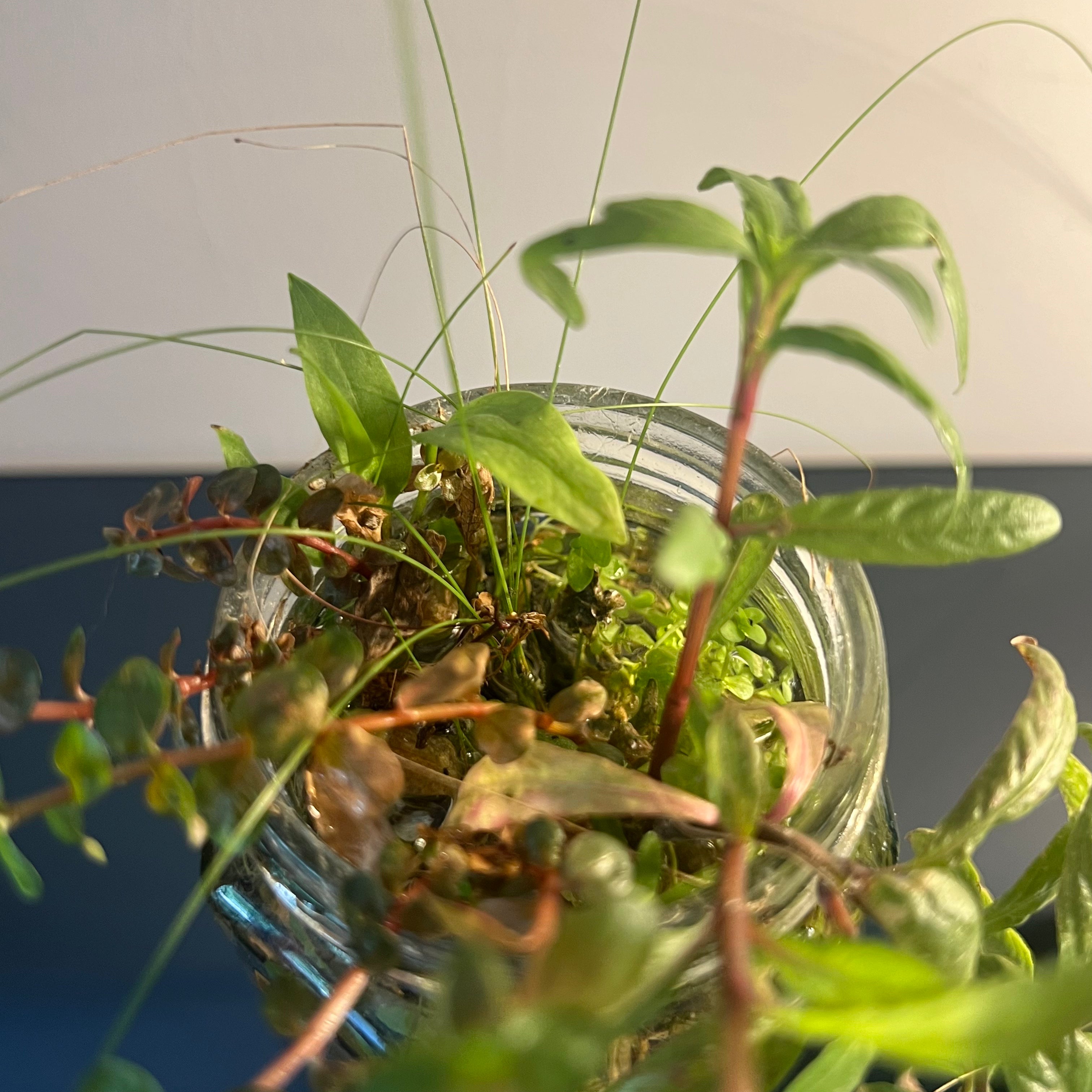
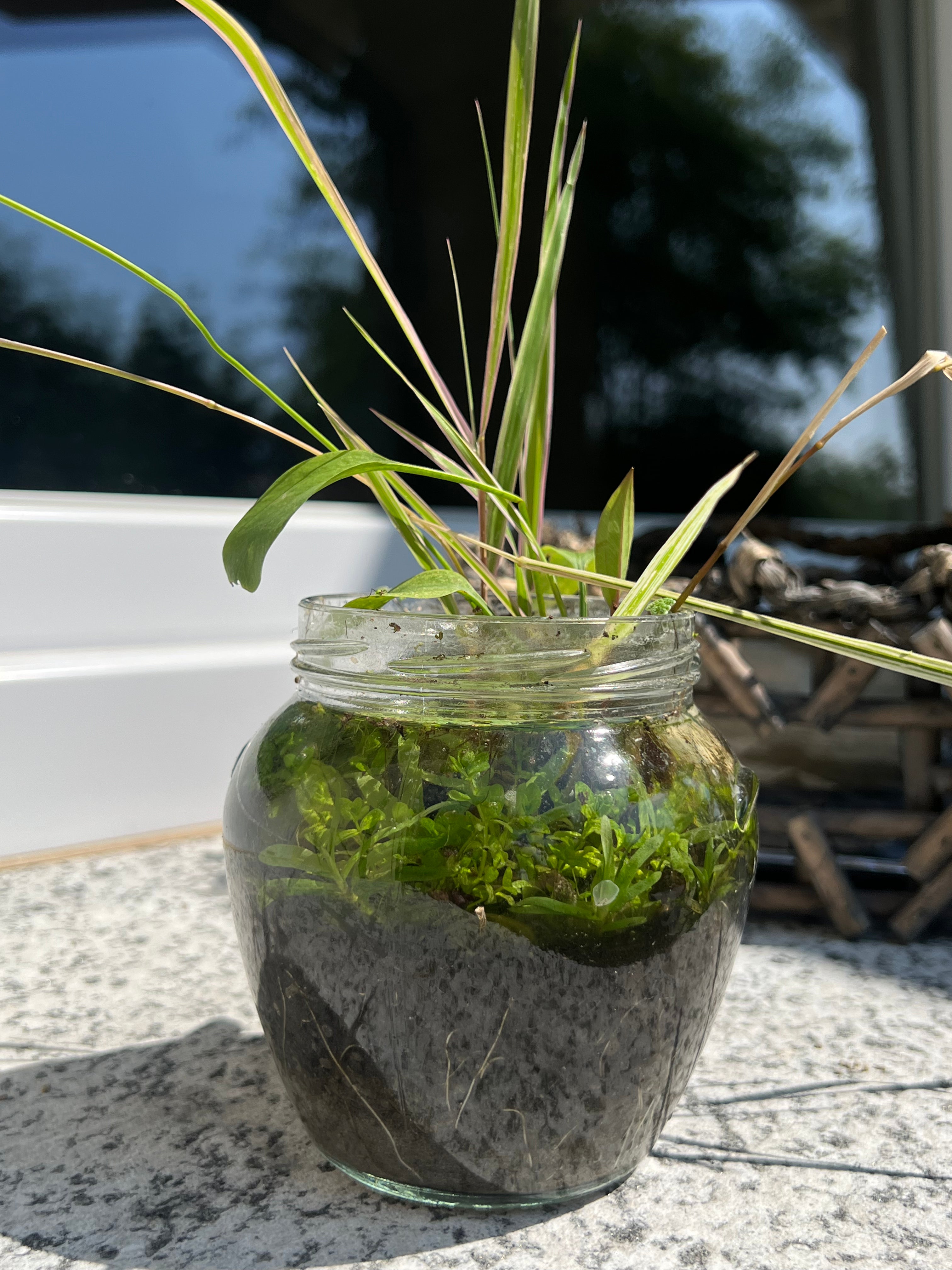
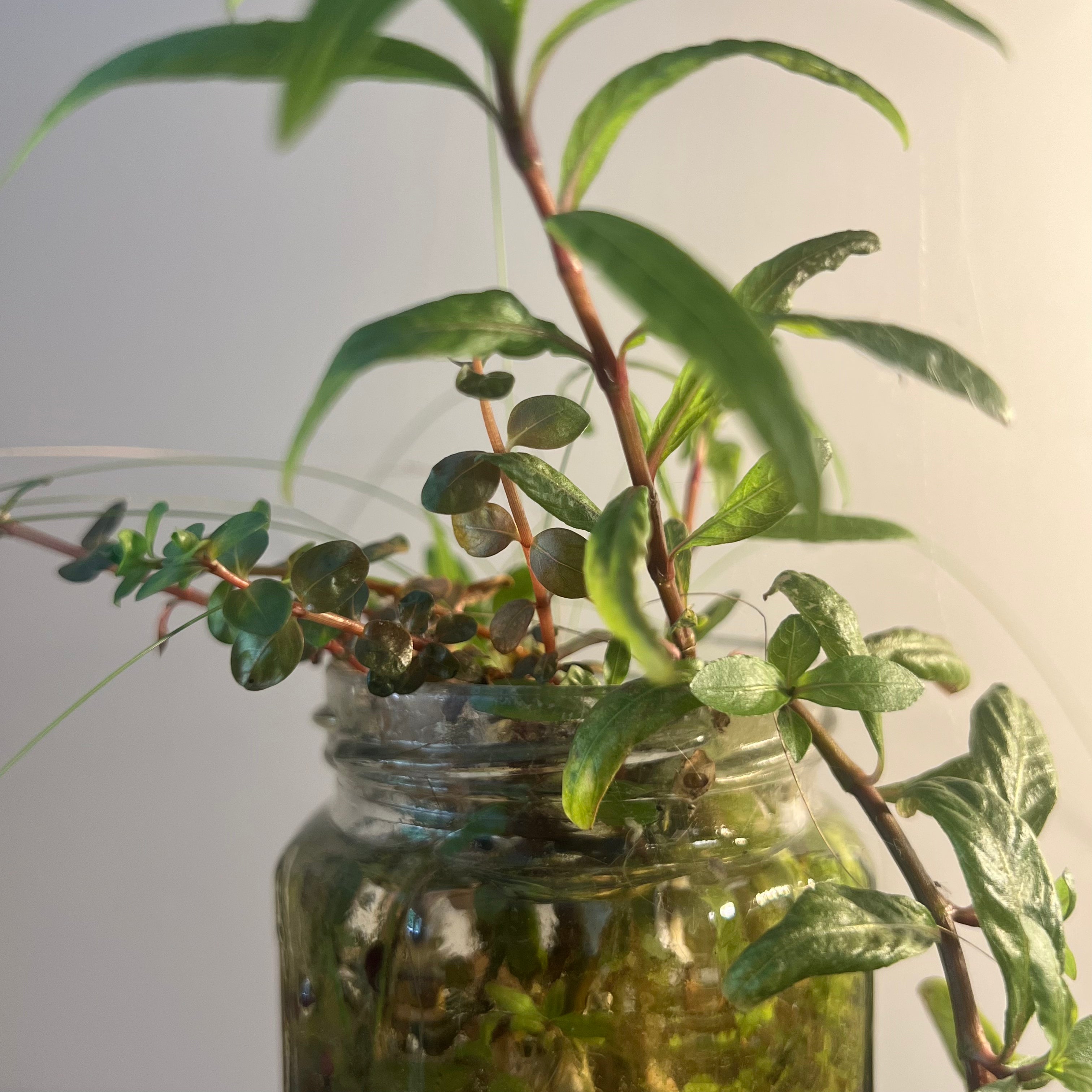
MICRO-RIPARIUM eco
LET'S LEARN TO LOOK DEEPER!
Inside the jar are representatives of all five kingdoms of life forms. From the simplest, composed of a single cell, to the most complex. There are those who can produce their own food, like algae and plants, to those who must feed on other life forms to survive.
What appears to us as something very simple is actually a complex balance between minerals and life forms.
Depending on the conditions of light, temperature and the presence or absence of water, this ecosystem varies by alternating moments of strong plant growth with slowdowns and compensations by the algae.
EACH PRODUCT IS UNIQUE AND DIFFERENT FROM THE OTHERS, NATURE DEVELOPS ITS SHAPES IN THE MOST UNIQUE WAY
Even some animals will be more or less present at certain times, these are completely normal reactions, a mirror of what happens in any environment in nature.
WHAT ANIMALS CAN WE FIND INSIDE A MICRORIPARIUM VISIBLE TO THE NAKED EYE?
There are many life forms enclosed within it, given that each MICRORIPARIUM is different from the other, it is not a given that the same ones are present in all of them.
OSTRACODS Very small invertebrates that move quickly between open water and substrate, they feed on any type of detritus of vegetal or animal origin
DAPHNIA small crustacean that feeds on unicellular algae in suspension
CYCLOPS is a tiny crustacean that feeds on phytoplankton
ANNELLIDI (worms) there are many species that we can find, they live in the bottom band, they feed on debris and their incessant digging avoids the compaction of the soil by bringing oxygen to the depths
ASELLUS a crustacean of "large" size, compared to the other inhabitants, is a detritivore that feeds on old leaves fallen on the bottom
GASTEROPODS (snails) Planobarius, Planorbella, Limnea and Physa we will see them grazing in search of biofilm and organic debris on the surfaces of plants and on the glass of the jar. They lay clearly visible eggs protected by a transparent jelly
HYDRA sometimes their green color can be confusing and make them look like algae, but in reality they are more similar to jellyfish. They feed on phyto and zooplankton
FLYING INSECT LARVAE chironomids, midges, mosquitoes and dragonflies can lay eggs in your MICRORIPARIUM. They are not harmful to the ecosystem, but mosquito larvae can be aspirated with a needleless syringe before metamorphosis.
FIND OUT MORE

Staff attentive to the needs of the customer, patient but above all very professional in the sector. Highly recommended to those who have to start this hobby
Spectacular hand-made custom aquariums....the owner Christian is very helpful, friendly and super competent and follows you from the installation of the aquarium to the final set-up.....top....highly recommended
Always excellent service and guaranteed professionalism!
Write some content about what they say about your store.

